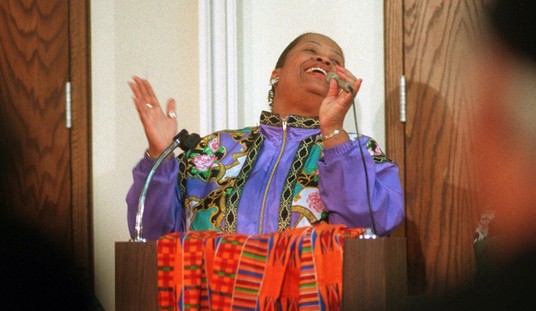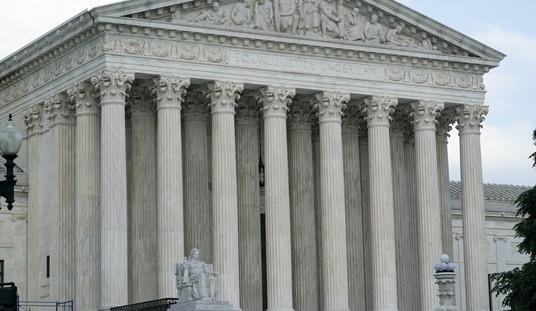Eight days ago was a sweep of an election that saw Republicans gain control of the Senate and greater control of the House. Right now, with the declaration of Dan Sullivan the winner over [mc_name name=’Sen. Mark Begich (D-AK)’ chamber=’senate’ mcid=’B001265′ ] in Alaska, the Senate has 53 Republicans coming in. In Louisiana, we could see the 54th on December 6th, as [mc_name name=’Rep. Bill Cassidy (R-LA)’ chamber=’house’ mcid=’C001075′ ] is poised to take that seat as well.
Louisiana is providing a very interesting feel for the issues that mattered in this election cycle. The Cassidy campaign has tried many talking points in the race, but the only ads you now really see in the state are ones that tie Landrieu to Obama. Ads on immigration and gun control came and went fairly quickly. Landrieu’s only real tactic was to talk about how important her seat on the Energy Committee was, despite having done nothing to aid her state with that spot.
The issue that people seemed to respond to is Obama. It is a lack of progress in the country that people seemed to vote against. Stagnation hit hard and the economy hasn’t really gotten any better. I’m reminded of a Josh Marshall piece at Talking Points Memo that adds a little something to this discussion (though, naturally, Marshall’s end result is wrong):
Democrats have toyed (and I use that term advisedly) with the issue of rising inequality for the last two elections. But let me suggest that as a political matter inequality is a loser. What is driving the politics of the country to a mammoth degree is that the vast majority of people in the country no longer have a rising standard of living. And Democrats don’t have a policy prescription to make that change.
[…]
Fundamentally, most people don’t care particularly how astronomically wealthy people are living their lives. It is a distant reality on many levels. They care a great deal about their own economic circumstances. And if you are not doing any better than you were 5 years ago or a decade ago or – at least in the sense of the hypothetical median wage earner – 40 years ago, that’s going to really have your attention and shape a great deal of your worldview and political outlook.
So, let me sign up with those who are saying that it was a mistake not to run more clearly on the President’s (and the Democrats’) economic record. Unemployment is back down to something like normal levels (under 6%); the deficit has fallen consistently and is now back to pre-crash levels judged as a percentage of GDP (which is the only meaningful way to judge it); the stock market has done incredibly well. Yes, totally.
But here’s the thing: As long as most voters are still just treading water in their own economic lives, Republicans can say, “Oh yeah, they say the economy’s doing great with all their fancy numbers. But that’s not what I see!” To an extent that will just be another Republican paean to innumeracy. But it will resonate because rising employment is not leading to rising wages. And that’s the core economic experience of wage earners who make up the overwhelming number of people in the country. In a critical sense, it is true.
What Marshall gets right is this: The Democrats “toyed” with inequality (if by “toyed,” he means “hammered to the point of turning voters off”) (I’m looking at you, soon-to-be-former [mc_name name=’Sen. Mark Udall (D-CO)’ chamber=’senate’ mcid=’U000038′ ]), and it blew up in their faces. Making certain races single-issue and just harping on the exact wrong issues for others did not help them at all, though they were convinced it was a winning strategy. This could, in fact, be seen as a problem of demography, though that is really an entirely separate issue to be discussed later.
The Republicans simply had to run against Obama, who made it extremely easy by saying his policies were on the ballot and by tying himself to campaigns like Michelle Nunn’s. There was no key issue for them to take up, and, like Marshall, I do wonder if playing on the economy a bit could have helped. Because, the fact is, people don’t feel it. The numbers for the jobless rate don’t mean much to the average American who has been laid off or has dropped out of the job market completely. What the stock market is doing is largely unimportant to those who live month-to-month.
Economic stagnation, what the average American feels about their own wallet, was a huge driving force, at least according to the Washington Post.
Preliminary exit polls find an electorate deeply pessimistic about the economy and Washington’s ability to get things done, with most saying they have negative views of both political parties. Two-thirds of voters say the country is on the wrong track. and more than three quarters are worried about the direction of the economy in the next year.
That, too, is a major problem with Washington D.C. as a whole. The economics of D.C. are different than the rest of the nation. Policymakers live in a bubble that don’t allow them to see the rest of the nation’s economic struggles in proper perspective. This is what leads to things like Democrats running on single-issue, demography-based talking points, and it is what leads Republicans to decide spend like there will never not be money.
Now, of course, this can change, depending on who gets to the Senate and the House and what they will ultimately do. There are many plans that are typically on the Republican platform that can fix this, but if GOP leadership decides to coast along rather than try to affect any change, then their victory will be for naught and the voters will respond much like they did to Democrats this year.













Join the conversation as a VIP Member